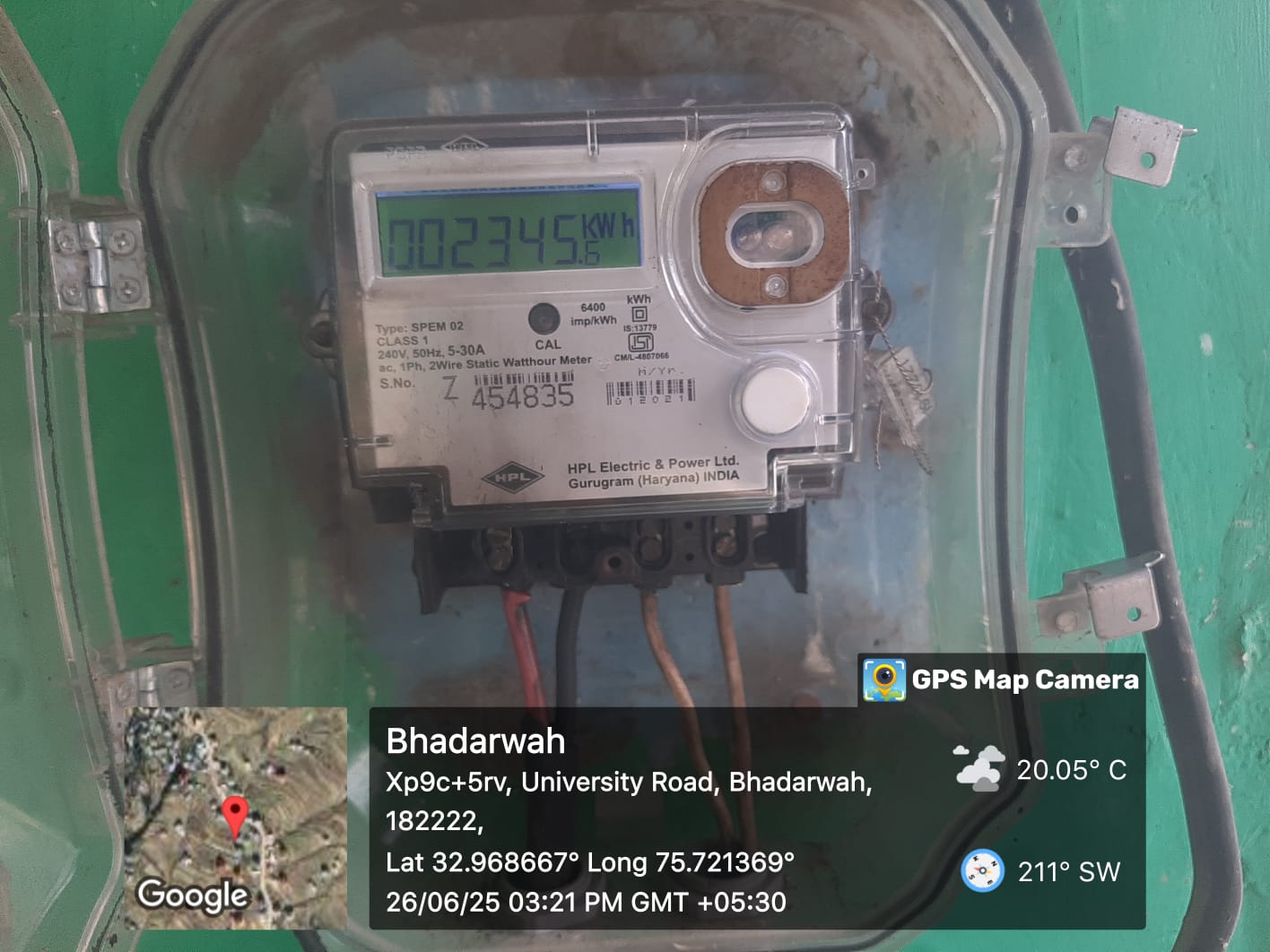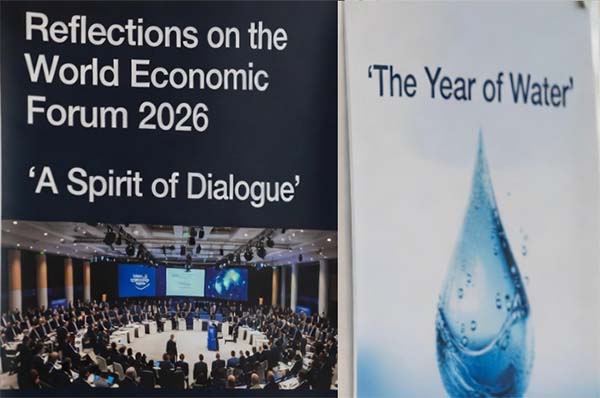Bhaderwah, JULY 2: A wave of public dissatisfaction is sweeping across the Bhaderwah valley, where scores of residents are voicing serious concerns over alleged irregularities in electricity billing, discrepancies in digital meter readings, and indifferent responses from officials of the Power Development Department (PDD). The issue, though technical on the surface, reflects deeper systemic and administrative problems affecting the daily lives of ordinary citizens — particularly economically weaker sections.
According to local accounts, there is a growing pattern of mismatch between meter readings and billing statements, with electricity bills in many households showing inflated consumption far beyond the actual figures displayed on digital meters. This has resulted in unexpectedly high charges, leaving several low-income families under financial stress.
Despite repeated appeals, many consumers report that their concerns are either ignored or deflected by local PDD staff. Some allege that they were forced to make unofficial payments for bill corrections or receipts that were never delivered. These unresolved grievances have added to a mounting sense of alienation and frustration among the public.
What adds to the unease is the perception of selective treatment, where underprivileged families bear the brunt of billing anomalies, while households with political or commercial influence seem to receive undue flexibility. Locals believe that such disparities are undermining public faith in the fairness and integrity of the system.
Despite Chief Minister Omar Abdullah’s recent reiteration of his government’s commitment to fulfilling the promises outlined in its manifesto — including the provision of 200 units of free electricity to eligible households — the situation on the ground remains deeply troubling. Seven months into the new administration, this key promise has yet to materialize in any meaningful way. Instead of relief, poor and underprivileged families continue to suffer due to faulty and exaggerated meter readings. Such discrepancies not only betray public expectations but also reflect poorly on the seriousness of implementation at the departmental level.
While the Central Government under the leadership of Hon’ble Prime Minister Narendra Modi has consistently shown commitment to uplifting the poor — through landmark schemes such as Ujjwala Yojana, Saubhagya, PM Awas Yojana, Jan Dhan Yojana, and the Aayushman Bharat health mission — the situation on the ground presents a stark contrast. Instead of ensuring smooth delivery of services, some government functionaries have allegedly adopted a bureaucratic and high-handed approach, distancing themselves from the public they are meant to serve.
A senior PDD officer, speaking anonymously, acknowledged that “large-scale irregularities do exist,” and alleged that certain officials may be deliberately misusing their positions to harass common people, possibly even manipulating public sentiment for political motives. “It’s all going hand in hand — the people are suffering, and those responsible are hiding behind official machinery,” the officer claimed.
Another departmental source pointed out that a nexus may exist between select officials, political operatives, and commercial beneficiaries, including sawmills and joinery mills. He urged the government to investigate these links. “If such connections are thoroughly examined, the true picture of departmental ethics and operational integrity will come to light. The so-called good work culture has been built on graced palms,” he commented, hinting at favoritism and corruption.
Citizens across Bhaderwah valley are now urging higher authorities to initiate a third-party audit of billing mechanisms, ensure complete transparency in meter readings, and take decisive action against any official found guilty of malpractice, favoritism, or misuse of public authority.
The unfolding situation underscores a critical truth: while the Central Government continues to strengthen its pro-poor agenda with inclusive and transformative schemes, their true impact can only be realized when the local implementation is transparent, accountable, and people-centric. The time has come for governance at the grassroots to match the vision and integrity shown at the top.
By Mansoor Qadir.



